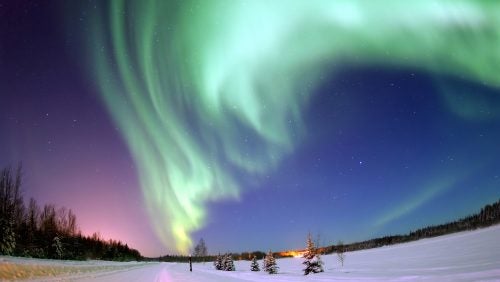Russia, the Arctic Council, and the Militarization of the Northern Sea Route
November 16, 2020 by Digital Editor

By: David Roghair
The Ottawa Declaration of 1996 founded the Arctic Council, with eight member states: Canada, Denmark, Finland, Iceland, Norway, Russia, Sweden, and the United States. Several other states and organizations hold observer status, and six groups representing indigenous peoples are designated as “permanent participants.” One of the Council’s main goals, per the Ottawa Declaration, is “promoting cooperation, coordination and interaction among the Arctic States[.]” Notable accomplishments of the Council have included agreements governing oil spill response, search and rescue, and scientific cooperation. Chairmanship of the Arctic Council rotates among member states every two years.
In May 2021, Russia begins its two-year term as Chairman, taking over from Iceland. In August 2020, during the runup to its chairmanship, Russia’s presidentially-led Security Council formed a special commission to focus on its interests in the far northern region, including military issues. In a statement released in mid-October 2020, Security Council Deputy Chairman (and former President and Prime Minister) Dmitry Medvedev indicated that Russia’s chairmanship will focus on security issues, particularly countering the United States’ and NATO’s purported efforts “to restrict Russia’s activities in the Arctic[.]” Based on these statements and its recent activities, Russia’s term at the head of the Arctic Council is likely to focus on military issues, particularly in the Northern Sea Route (NSR) along the Arctic coast.
The Ottawa Declaration explicitly excludes “matters related to military security” from the Arctic Council’s purview. Both Russia and the United States, however, have begun to push the boundaries of this exclusion. Preceding Russia’s announcements above, U.S. Secretary of State Mike Pompeo gave a speech on May 6, 2019 before the Council’s Ministerial Meeting in Finland, directly criticizing both observer state China, for alleged military activity in the Arctic under the guise of scientific research, and Russia, for its increased military presence and restrictions on foreign ship traffic in the NSR. Delegates expressed alarm at the aggressive and castigatory tone of Pompeo’s speech, describing it as inconsistent with the historically cooperative and consultative nature of the Arctic Council.
Much of the controversy between Russia and other Arctic states centers around the NSR, connecting the Kola Peninsula in Russia’s European northwest to the Bering Strait at Russia’s maritime border with the United States. Warming temperatures and melting sea ice have caused a steady increase in shipping traffic along the NSR. Unobstructed by ice, the NSR provides a relatively quick passage from Europe to Asia: shipping times and distances through the NSR are one-third shorter than those through the Suez Canal.
The waters of the NSR are international waters under the United Nations Convention on the Law of the Sea (UNCLOS), enacted in 1994. All Arctic Council member states are either parties or signatories to UNCLOS. Under Article 87, all states have freedom of navigation on the “high seas,” defined in Article 86 as all seas that are not “in the exclusive economic zone, in the territorial sea or in the internal waters of a State[.]” In addition, a coastal state has special sovereignty over its continental shelf under Article 77 “for the purpose of exploring it and exploiting its natural resources.” Along the NSR, Russia has claimed that its continental shelf extends over the North Pole, a claim that the United Nations Commission on the Limits of the Continental Shelf (CLCS) has yet to recognize and that overlaps with claims from both Denmark and Canada. Thus, while most of the world sees it as international waters subject to freedom of navigation, Russia’s official position is that the NSR constitutes its own internal waters.
While secure borders and access to waterways have been themes in Russian and Soviet security policy for centuries, a recent military buildup in the far north has accompanied the melting of sea ice along the NSR. Since 2007, Russia has reopened over fifty Soviet-era military installations in its Arctic regions. The Russian Navy has conducted tests of a new medium-to-long-range hypersonic cruise missile in Arctic waters, developed nuclear-powered submarine drones with nuclear warheads, for deployment in the Arctic, and launched a “combat icebreaker,” equipped with cruise missiles. These naval resources fall under the command of the Northern Fleet, established in 2014 and concentrated in European Arctic waters with “nuclear-powered missile and torpedo submarines; missile-carrying and anti-submarine aircraft; surface ships with missiles, aircraft-carrying, and anti-submarine capabilities[,]” as well as significant air and ground forces.
The Northern Fleet’s first reported enforcement action took place around September 2019, when Russian naval commandos boarded and seized a Russian cargo vessel near the Taymyr Peninsula in Siberia. In addition, Russia’s large icebreaker fleet, over forty nuclear and non-nuclear vessels, works in tandem with the Northern Fleet, and has provided mandatory escort services for nearly all ships transiting the NSR since 2013.
Both Russia’s focus on security and military issues in dealings with other Arctic states and its steady military buildup tie directly into its desire to maintain control of the NSR. Its regulation of the NSR, however, runs afoul of international law. Under domestic Russian laws passed in recent years, foreign military and commercial vessels transiting the NSR must request permission in advance, which may be denied without explanation. These laws treat the NSR as internal Russian waters under UNCLOS, rather than international waters. The melting sea ice caused by the changing climate and the accompanying increase in international maritime traffic have given Russia an opportunity to exert greater control over the NSR. That control, along with its economic and strategic benefits, are likely to loom large over Russia’s chairmanship of the Arctic Council.
David L Roghair is an LLM student at Georgetown, and a Magistrate Judge for the Alaska Court System in his hometown of Utqiaġvik (Barrow), on the Arctic Ocean. The views and opinions expressed in this blog post are those of the author and do not necessarily reflect those of his employer.

